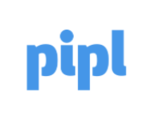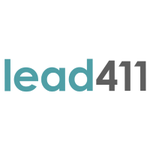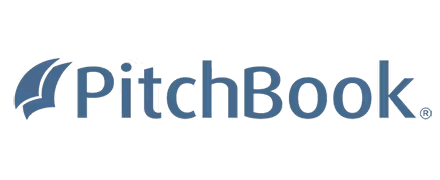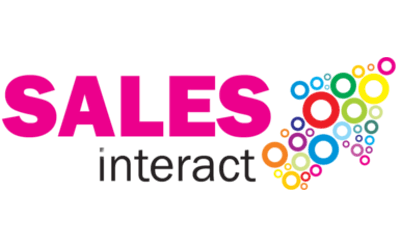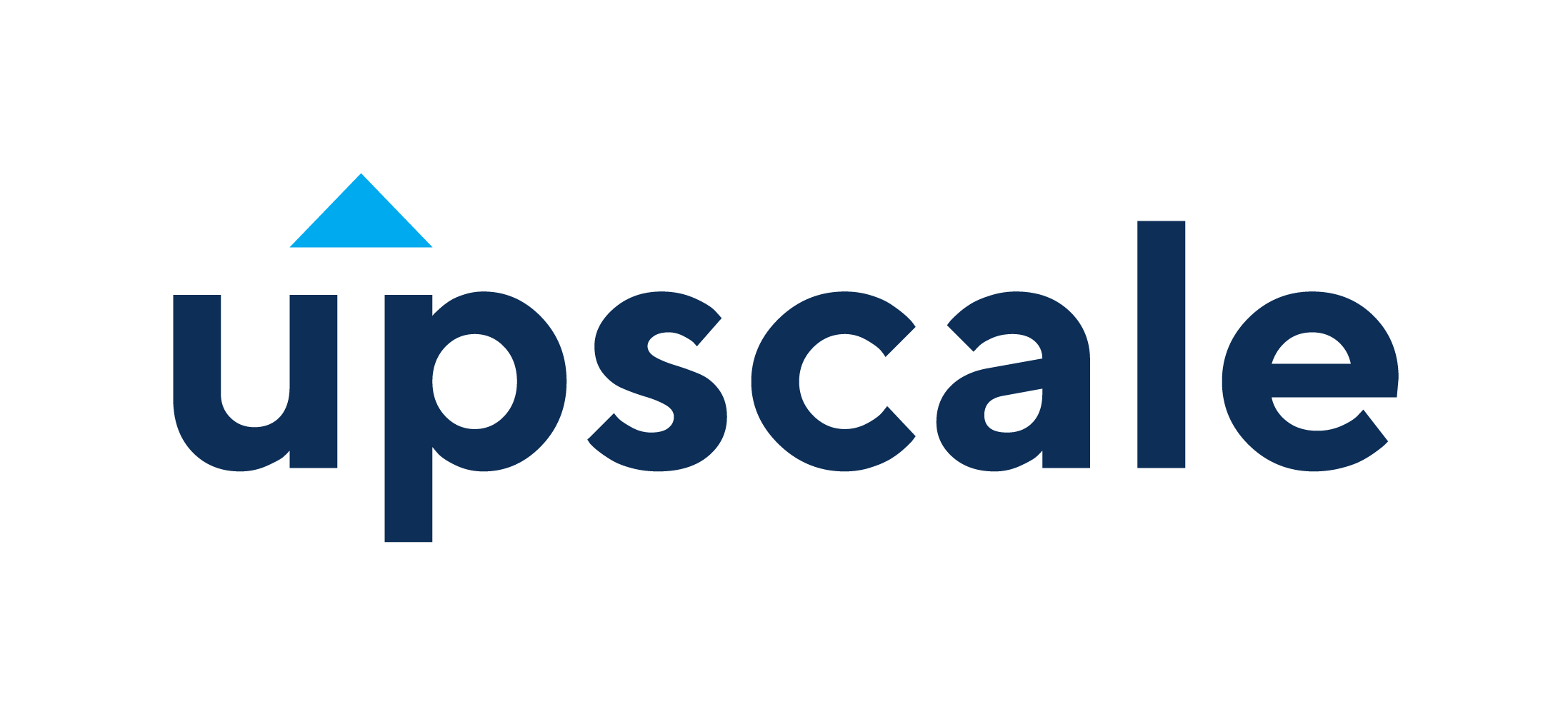Yes, most sales intelligence software products are accessible across numerous devices and platforms, allowing sales personnel to be more productive and up to date when on the road. These tools can be accessed via web-based applications or mobile apps, giving users access to critical information and insights from any device, including computers, tablets, and smartphones. This flexibility boosts efficiency and allows sales professionals to access information remotely, regardless of their location or preferred device.
List of 20 Best Sales Intelligence Software
CompStak Prospect solution for optimizing your sales process. Our innovative technology utilizes tenant information, such as move-in and move-out dates, to identify promising prospects in the commercial real estate market. With our assistance, you ca...Read More CompStak Prospect
Drift is a marketing automation tool designed to optimize communication between sales teams and clients. This powerful software offers a range of features such as Google Forms, follow-up options, and seamless website integration to boost your sales a...Read More Drift
Pipl is the premier solution for authenticating online identities, offering comprehensive digital profiles linked to valid information. It is an essential resource for companies aiming to establish credibility and improve safety in their digital inte...Read More pipl
Lead411 is a B2B data solution for businesses. Generate unlimited sales leads and boost your revenue with ease. Our platform offers verified email addresses and direct-dial numbers for successful lead generation and guaranteed deliverability. Elimina...Read More Lead411
Auctm is an advanced Analytics tool specifically designed for Broker teams to enhance their conversions and ensure maximum accountability. The platform seamlessly integrates transaction, CRM, and financial data, eliminating the need for manual data e...Read More Auctm
Intricately is a sales intelligence tool that harnesses the power of providers digital presence and provides real-time alerts. Every contact record is enriched with details about their role, responsibilities, and team composition. Stay in-the-know an...Read More Intricately
PitchBook is a Sales Intelligence software designed for the unique requirements of venture capital and private equity sectors. It provides top-notch information, news, and insights, making it an essential tool for experts in these industries. Through...Read More PitchBook
Kit19 - your all-in-one solution for effortless integration of Machine Learning into your daily workflows. Our dynamic platform adapts to your changing needs, utilizing valuable data insights to anticipate your preferences and provide personalized su...Read More Kit19
Webspotter is an efficient tool that provides a comprehensive list of websites using specific technologies such as Magento, Wix, and Wordpress. Gain access to updated statistics and stay informed while making important decisions. With Webspotter, fin...Read More Webspotter
Salesinteract is a CRM solution that provides a 30-day free trial without the need for a credit card. Our platform boasts a user-friendly dashboard that displays live sales and user data, eliminating the need for additional plugins. Experience unprec...Read More Salesinteract
Demandbase is a ABM solution for tracking and measuring the success of your marketing strategies. With its all-in-one platform, youll gain valuable insights on your target audience and confidently drive successful outcomes throughout the marketing fu...Read More Demandbase
Accent Accelerator is asoftware designed to empower sales teams and enhance their performance in the competitive B2B market. With its advanced features, valuable data, and cutting-edge technology, this solution equips your team to achieve success in...Read More Accent Accelerator
Ampliz SalesBuddy - the leading B2B Sales Intelligence platform designed to simplify your prospecting process. Connect instantly with key decision-makers and eliminate the hassle of finding potential leads. With Ampliz SalesBuddy, revolutionize your...Read More Ampliz SalesBuddy
Outreach.io is a Inside Sales solution that caters to the needs of startups, small businesses, and medium-sized enterprises. It equips sales teams with the tools they need to improve communication and achieve better results on calls, resulting in inc...Read More Outreach.io
Lead Pyramid is the chrome extension designed to validate and verify your extracted data in real-time. Our main focus is delivering impeccable customer satisfaction and with Lead Pyramids cutting-edge data authentication capabilities, you can have co...Read More Lead Pyramid
Upscale is an innovative sales engagement software designed to drive revenue growth through targeted multi-channel sequences. Our platform streamlines sales processes, enabling sales teams to effectively convert leads and generate a consistent stream...Read More Upscale
Crunchbase, Sales Intelligence platform catering to professionals in various roles such as sales, marketing, finance, recruitment, and leadership. Through personalized features like account suggestions, lists, and territory settings, Crunchbase strea...Read More Crunchbase
InsideView is the leading Sales Force Automation solution that provides real-time market and organizational intelligence, integrating seamlessly with top CRM and marketing automation platforms. Keep your sales representatives informed and up-to-date...Read More InsideView
RainKing is an innovative sales intelligence platform that streamlines lead generation and increases revenue for businesses. Our user-friendly and regularly updated tool facilitates effective collaboration between sales and marketing teams, leading t...Read More RainKing
PeekYou is people search software that utilizes cutting-edge technology to gather information from various online sources, including social media and public records. It offers comprehensive profiles, making it effortless to find and connect with frie...Read More PeekYou
Learn More About Sales Intelligence Software
- What Is Sales Intelligence Software?
- What Are The Recent Trends In Sales Intelligence Software?
- Benefits Of Using Sales Intelligence Software
- Important Factors To Consider While Purchasing Sales Intelligence Software?
- What Are The Key Features To Look For In Sales Intelligence Software?
- Why Do Businesses Need Sales Intelligence Software?
- How Much Time Is Required To Implement Sales Intelligence Software?
- What Is The Level Of Customization Available In Sales Intelligence Software?
- Which Industries Can Benefit The Most From Sales Intelligence Software?
- Conclusion
What Is Sales Intelligence Software?
Sales Intelligence Software is a strong tool that assists firms in gathering and analyzing market data and client information, allowing them to make informed decisions and implement smart sales plans. It is intended to improve sales efficiency and effectiveness by providing information on possible leads, customer management, and overall market trends.
With the ever-changing market landscape and increased rivalry, Sales Intelligence Software has become an essential tool for firms seeking a competitive advantage. This program combines multiple data sources, including social media, market research, and corporate data, to provide a holistic perspective of the market and customers. One of the key roles of Sales Intelligence Software is lead generating.
It uses powerful algorithms and data analysis to find possible leads and contact information, saving sales teams time and effort. This program allows firms to efficiently target their marketing and sales efforts, resulting in higher conversion rates. Sales Intelligence Software also provides detailed research of client behavior and preferences, allowing organizations to adjust their sales approach to each particular consumer.
This not only enhances the whole client experience, but also increases customer satisfaction and retention rates. Furthermore, this program can track the performance of sales teams, providing insights into individual and group performance. It also aids in identifying areas for improvement and adjusting sales strategy accordingly. Businesses can save money and boost productivity by optimizing their sales processes.
Sales intelligence software also includes real-time alerts for potential sales opportunities, sales forecasting, and configurable reporting. It also works with existing sales and customer relationship management systems, making it a seamless part of the sales process.
What Are The Recent Trends In Sales Intelligence Software?
In recent years, sales intelligence software has grown in popularity as firms recognize its critical role in enhancing sales effectiveness. Sales intelligence software has grown to provide advanced insights and predictive analytics, in addition to basic customer information, thanks to technological and data analytics advances. One significant trend in sales intelligence software is the incorporation of artificial intelligence (AI) and machine learning.
These tools improve data analysis and predictive modeling, allowing sales teams to recognize patterns, forecast consumer behavior, and make data-driven decisions. Furthermore, AI-powered sales intelligence software can automate certain duties, freeing up sales professionals' time for more productive activities. Another trend is the increased usage of sales intelligence tools on mobile devices.
This enables sales staff to access critical data and insights while on the go, including in-person meetings with clients. With the advent of remote work and the requirement for real-time information, the demand for mobile-friendly sales intelligence software is only going to increase. Furthermore, social media integration has become a critical aspect in sales intelligence applications.
With the development of social selling, organizations are using sales intelligence software to collect data and insights from numerous social media platforms. This enables sales representatives to adapt their outreach to potential consumers and foster stronger relationships. In addition to these trends, sales intelligence software is becoming more user-friendly and adaptable.
This enables firms to personalize the software to their own requirements, resulting in a more natural user experience. Furthermore, there is a rising emphasis on data security and compliance, with sales intelligence software providing strong security measures to safeguard sensitive client information.
Benefits Of Using Sales Intelligence Software
Sales Intelligence Software, also known as Sales Intelligence Tools or Sales Analytics Software, is a powerful technology that gives firms vital insights and data to help them drive sales strategies and improve revenue.
Here are some major advantages of adopting sales intelligence software:
1. Comprehensive Data Collection And Analysis: Sales intelligence software gathers, organizes, and analyzes information from a variety of sources, including CRM systems, social media, and online traffic. This enables organizations to have a comprehensive understanding of their customers, market trends, and competitors.
2. Accurate Sales Forecasting: Sales Intelligence Software uses real-time data and predictive analytics to generate accurate sales projections. This enables firms to make informed judgments about resource allocation, budget planning, and sales tactics.
3. Targeted Lead Generation: Sales Intelligence Software use powerful algorithms and machine learning to discover potential leads based on demographics, behavior, and purchasing patterns. This allows firms to focus their resources on prospects who are most likely to convert into customers.
4. Improved Sales Performance: Sales Intelligence Software provides sales teams with valuable data and personalized recommendations, allowing them to focus their efforts, target the proper prospects, and close transactions more quickly.
5. Efficient Sales Processes: Sales Intelligence Software automates and analyzes data to streamline sales processes and remove manual duties. This saves time and effort, allowing salespeople to focus on closing business.
6. Improved Customer Relationships: Sales Intelligence Software allows firms to better understand their consumers by tracking their interactions, preferences, and feedback. This enables individualized and targeted communication, resulting in stronger customer relationships and enhanced loyalty.
7. Competitive Advantage: Sales Intelligence Software provides firms with significant insights into their competitors' sales methods, pricing plans, and market positioning. This knowledge can help organizations get a competitive advantage and stay ahead of the curve.
Important Factors To Consider While Purchasing Sales Intelligence Software?
When it comes to selecting sales intelligence software, there are numerous important elements to consider to ensure that you are making the greatest possible investment for your company.
Here are the most crucial elements to consider while assessing sales intelligence software:
1. Data Accuracy And Reliability: The fundamental goal of sales intelligence software is to deliver accurate and reliable data that will allow you to make informed judgments. As a result, properly evaluating the software's data sources and algorithms is critical to ensuring that the information presented is current and correct.
2. Integration Capabilities: Your sales intelligence software should work easily with your current CRM, marketing automation, and other critical technologies. This will save you time and effort while also providing a comprehensive perspective of your sales and marketing efforts.
3. Customizability And Scalability: Each organization is unique, and your sales intelligence software should be adaptable to your individual requirements. Look for software that can be customized and scaled as your organization expands.
4. User-Friendly Interface: Because your sales crew will be utilizing the software on a frequent basis, it is vital that they have an easy-to-use interface. This ensures that your staff can use the software's features without hesitation.
5. Advanced Capabilities: In addition to delivering data insights, sales intelligence software should include advanced capabilities such as lead scoring, predictive analytics, and sales forecasting to help you stay ahead of the competition.
6. Support And Training: Implementing new software can be challenging, so find a vendor who provides outstanding customer support and training. This will assist the software's smooth and successful adoption within your firm.
7. Money: Of course, money will be an important consideration in your decision-making process. However, it is critical not to sacrifice important features and capabilities for a lesser price. Weigh the expense versus the potential return on investment before selecting the software that best suits your budget and requirements.
By taking these essential criteria into account, you can make an informed decision about selecting sales intelligence software that will assist increase your sales efforts and promote corporate success. Remember to conduct extensive study and weigh several choices before making your ultimate decision.
What Are The Key Features To Look For In Sales Intelligence Software?
Sales intelligence software is an invaluable resource for any company seeking to improve its sales strategy and make data-driven decisions. However, with so many options on the market, it can be difficult to evaluate which software is ideal for your needs.
To assist you in making an informed decision, below are the essential elements to consider while considering sales intelligence software:
1. Data Integration: One of the most important things to look for in sales intelligence software is the ability to link with your current CRM and other data sources. This enables you to use a consolidated database, reducing the need to transfer between several systems and ensuring that all data is current and accurate.
2. Prospect Database: Effective sales intelligence software should include a large and frequently updated database of potential customers. It should allow you to filter and search for prospects using a variety of criteria, including industry, company size, and geography.
3. Lead Scoring: Lead scoring is an important feature that allows you to rank your potential clients based on their level of interaction and likelihood of converting into a purchase. Look for software that combines behavioral and demographic scoring to provide you with a thorough view of your prospects.
4. Real-time Alerts: In today's fast-paced sales environment, quick insights are critical. A strong sales intelligence platform will send out real-time alerts when prospects interact with your material or exhibit purchasing intent. This allows you to contact them at the appropriate time with a personalized approach, enhancing your chances of closing the deal.
5. Sales Insights: In addition to gathering information about potential customers, sales intelligence software should provide insights into your sales process. This includes information on email open and response rates, phone activity, and other vital metrics that will help you track and improve your sales results.
6. Contact Management: Keeping track of all client interactions is critical to developing and maintaining connections. Look for software that stores and manages contact information, communication history, and even meeting or call notes.
7. Sales Analytics: Understanding and visualizing sales data is essential for making data-driven decisions and recognizing patterns. Make sure the sales intelligence software you purchase has powerful analytics capabilities that can provide insights into your sales performance, customer behavior, and market trends.
8. Mobile Accessibility: In an era of remote work and on-the-go sales personnel, having mobile-friendly sales intelligence software is essential. It provides easy access to crucial data and alerts, allowing your staff to stay connected and productive while on the go.
Why Do Businesses Need Sales Intelligence Software?
Sales intelligence software is a useful tool for firms of all sizes. This powerful program collects and analyzes massive amounts of data to deliver useful information about your sales performance, clients, and market trends. But why do enterprises need this kind of software?
Let's look at a few significant reasons:
1. Increase Sales Efficiency And Productivity: One of the primary advantages of sales intelligence software is its ability to simplify and automate sales operations. This software enables sales teams to focus on completing deals and creating connections instead of wasting time on manual duties such as data entry and analysis.
2. Discover Leads And Prospects: Sales intelligence software uses advanced algorithms and machine learning technologies to discover possible leads and opportunities based on their behavior and demographics. This allows sales teams to more effectively target their efforts, thereby increasing conversions.
3. Understand Client Wants And Preferences: Sales intelligence software can help you understand what inspires your consumers to buy by collecting and analyzing their interactions and activities. This enables firms to adjust their approach and messaging to their clients' requirements and interests.
4. Monitor And Track Sales Performance: Sales intelligence software provides firms with a detailed perspective of their sales success through real-time reporting and analytics. This contains indicators like lead conversion rates, sales pipeline, and top-performing regions. By closely monitoring these important factors, firms can make data-driven sales strategy improvements.
5. Stay Ahead Of Industry Trends: Sales intelligence software not only monitors your own sales success, but it also provides vital insights into market trends and competition activity. This enables firms to recognize possible threats and opportunities, adjust their strategy accordingly, and stay ahead of competitors.
How Much Time Is Required To Implement Sales Intelligence Software?
The time necessary to implement Sales Intelligence Software will vary depending on a number of factors, including the size and complexity of your sales activities, the level of customization required, and the software's capabilities. On average, properly implementing and integrating Sales Intelligence Software into your sales process can take several weeks to months.
This could entail teaching your team how to use the software, setting up data sources, and customizing the product to match your specific requirements. One of the primary benefits of Sales Intelligence Software is its ability to streamline and automate various areas of the sales process. This can considerably minimize the time and effort needed for deployment.
However, it is crucial to note that the initial setup and customization of the software may still take some time and money. Another aspect influencing the implementation timeline is the availability of internal resources and assistance. It is advised that a specialized team or individual oversee the implementation process and provide continuing assistance to ensure a smooth transition and optimal utilization of the program.
What Is The Level Of Customization Available In Sales Intelligence Software?
Sales intelligence software provides a variety of customization choices for its customers, allowing firms to adjust the program to their individual needs and preferences. The level of customization offered varies per sales intelligence software, but in general, users have a lot of freedom over how they can tailor the software to match their needs.
Data integration is one of the most common areas for customisation in sales intelligence software. Most software allows users to import and integrate their own data sources, such as customer lists and CRM data, to improve the accuracy and relevancy of the information supplied. Users can also choose which data points to focus on and remove extraneous information. Another facet of customisation is the ability to design custom fields and dashboards.
This enables firms to track and evaluate data points relevant to their specific sales processes and goals. A corporation that focuses on regional sales, for example, may develop a dashboard dedicated to tracking regional sales performance. Furthermore, sales intelligence software frequently offers the ability to build up unique alerts and notifications. These can be extremely tailored, ranging from real-time alerts for individual accounts or leads to scheduled reports on certain data parameters.
This allows firms to stay up to date on the latest developments and take appropriate action in a timely manner. Furthermore, many sales intelligence software provides customizable reporting options. Users can select which data metrics to include in their reports, as well as personalize the reports' visual style and branding to match their company's brand.
Which Industries Can Benefit The Most From Sales Intelligence Software?
Sales intelligence software is an effective tool for firms of all sizes and industries, delivering important insights and data to help shape sales tactics and increase revenue. However, several industries stand to benefit even more from the implementation of sales intelligence tools. The financial services business can benefit substantially from sales intelligence software.
To stay ahead in today's rapidly changing market and fierce competition, financial institutions must have a thorough awareness of their clients and prospects. Sales intelligence software gives precise information about potential leads and existing clients, assisting financial services companies in identifying chances for cross-selling and upselling, as well as identifying the most promising prospects for new business.
Sales intelligence software can also aid technology and software companies. These companies frequently use complex sales procedures and rely significantly on data to inform their sales strategy. Sales intelligence software can assist these businesses in gathering market insights and tracking critical indicators such as attrition rates and customer happiness, allowing them to make data-driven decisions that improve overall performance.
Furthermore, with its extensive analytical capabilities, sales intelligence software may assist technology companies in identifying patterns and trends in customer behavior, allowing them to personalize their offerings and enhance the customer experience. B2B firms, particularly those in manufacturing and distribution, can benefit greatly from sales intelligence tools.
These companies frequently have extensive sales cycles and several decision-makers involved in the purchasing process. Sales intelligence software can provide precise data and insights about each prospect and their position in the decision-making process, allowing sales teams to devise focused and tailored ways to closing deals more efficiently. Finally, the healthcare industry can tremendously benefit from using sales intelligence software.
With the ongoing advancements and changes in the healthcare sector, medical device and pharmaceutical firms must stay current and adapt to their consumers' needs. Sales intelligence software can provide real-time data and updates on industry trends, competitor activity, and consumer behavior, allowing healthcare organizations to make informed decisions and stay ahead in a highly competitive market.
Conclusion
To summarize, investing in sales intelligence software is a critical step for organizations seeking to stay competitive in today's market. With access to precise and real-time data, sales teams can make data-driven decisions, enhance their performance, and ultimately drive higher revenue. Our detailed buyer's guide covers all of the important criteria that purchasers should consider before buying sales intelligence software.
From assessing the essential features to comprehending the pricing models and integration choices, we hope this guide has provided you with useful information to help you make an informed choice. When picking sales intelligence software, it is critical to understand your specific business requirements and select a solution that meets them. Additionally, don't be afraid to undertake extensive research, read reviews, and request demos to fully understand the capabilities of each product.
Overall, our goal with this buyer's guide is to provide you with the information you need to select a sales intelligence software that will empower your sales force and drive corporate success. We wish you the very best in your hunt for the ideal sales intelligence software.
Sales Intelligence Software FAQ's
Can Sales Intelligence Software Be Accessed Across Multiple Devices And Platforms?
Is Sales Intelligence Software Future-Proof And Adaptable To Emerging Technologies Like AI, Blockchain Or IoT?
Yes, sales intelligence software is future-proof and highly adaptable to upcoming technologies like artificial intelligence, blockchain, and the Internet of Things. With the quick improvements in technology, sales intelligence software is constantly expanding to provide the most recent capabilities and features.
It uses artificial intelligence to evaluate large volumes of data and generate important insights for sales teams. Furthermore, certain sales intelligence tools use blockchain technology to assure secure data exchange. Sales intelligence software's adaptability positions it to remain relevant and valuable in an ever-changing technology context.
Is There A Free Trial Offered To Assess Sales Intelligence Software Before Committing?
Yes, many sales intelligence software vendors provide a free trial to evaluate their product before making a purchase. This allows potential clients to investigate the software's features and benefits and assess whether it satisfies their requirements. It is always encouraged to take advantage of the free trial period in order to completely analyze the software and make an informed decision. Some suppliers even offer lengthier trial periods, so do your research before making a purchase.
Does Sales Intelligence Software Offer Data Security Features And Meet Regulatory Compliance Standards?
Yes, Sales Intelligence Software has strong data security features like encryption and access control to secure sensitive sales data from cyber attacks. It also follows regulatory compliance standards such as GDPR and HIPAA to ensure the secure handling of customer and prospect data. These procedures provide peace of mind while also maintaining the trust of both customers and regulatory organizations.
Can Sales Intelligence Software Integrate Seamlessly With Existing Tools And Platforms?
Yes, most sales intelligence software solutions are designed to work easily with existing tools and platforms. This enables for a more streamlined and cohesive sales process, eliminating the need to constantly switch between separate systems. With integration features, sales teams can simply access, analyze, and use data from a variety of sources, including CRMs, marketing automation systems, and social media platforms. This allows for a more efficient and effective sales strategy, making it easier to find and communicate with new clients and clinch deals.



